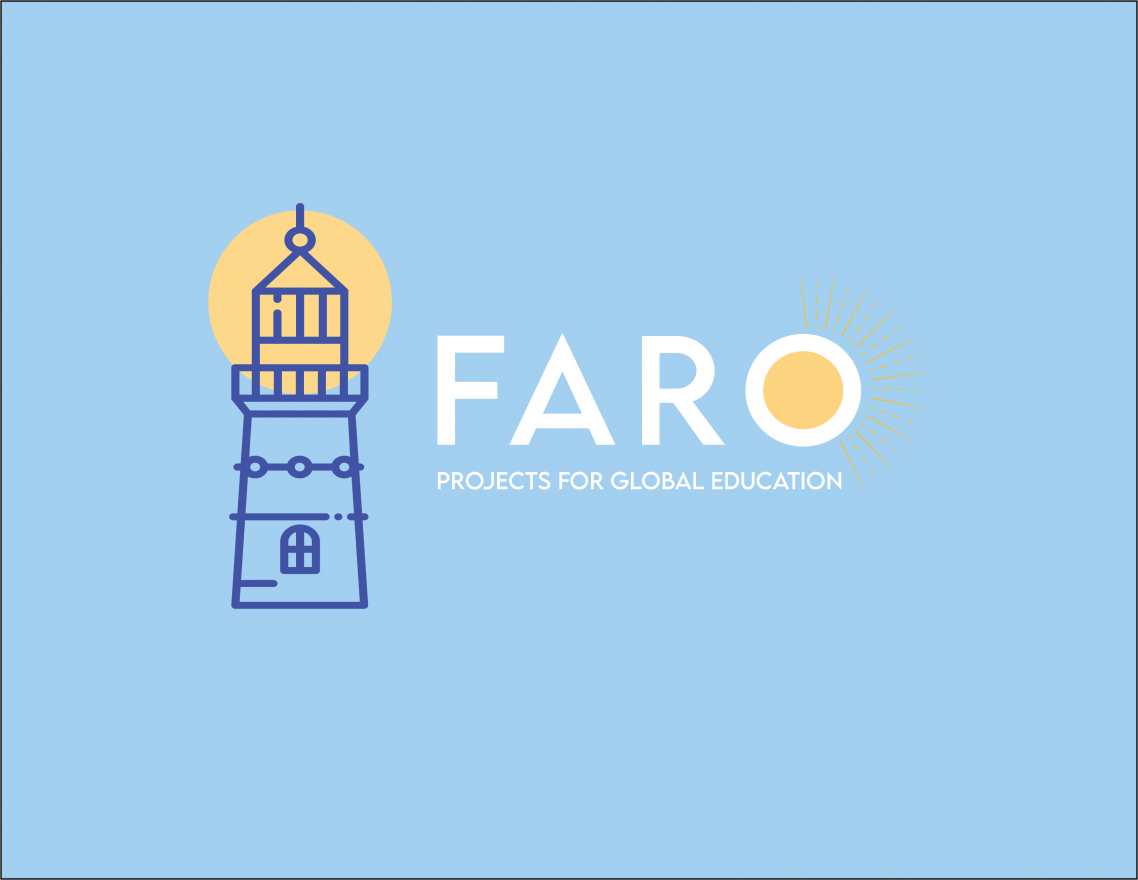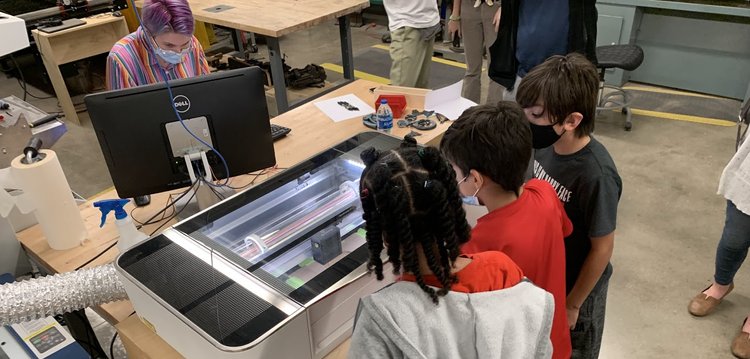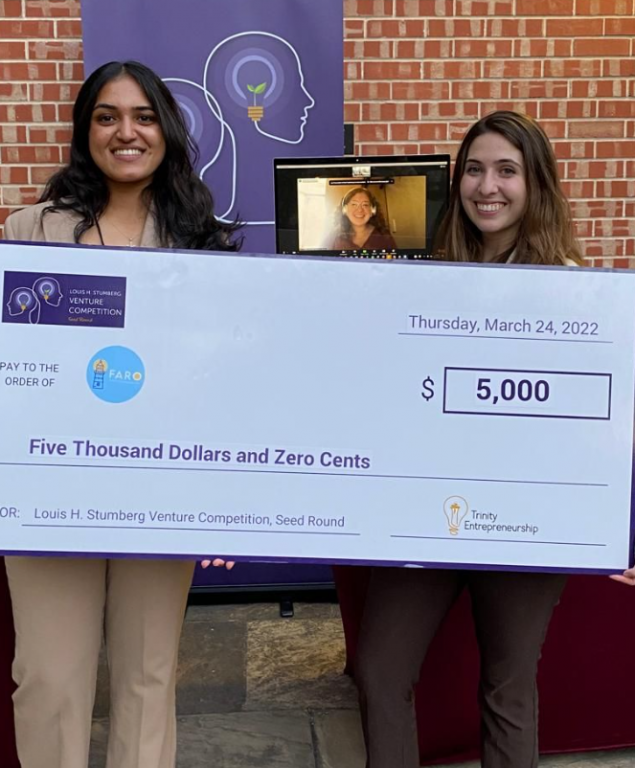
(Courtesy of Maria Zaharatos)

(Courtesy of Maria Zaharatos)
Hearing about climate change and the polluted state of the environment used to make me discouraged.
I knew that, if we ever wanted to make progress on these issues, systemic change had to happen, and that my actions alone (switching to reusable cutlery, grocery bags etc.) would not stop the massive scales of plastic pollution and global warming.
And while I couldn’t change this reality as one individual, I found hope in community.
During Fall 2020, in the midst of the COVID-19 pandemic, I met with peers over Zoom for a course in Social Entrepreneurship at Trinity University. We were tasked with addressing a global issue of our choice through creating a pitch for a student-led non-profit. Along with my classmates and newfound friends– Rachel Poovathoor & Shelby Atherton– I ended up researching the issue of plastic pollution, reaching out to young people in countries around the world to hear their local perspectives.
Our team ultimately settled on the idea for an educational non-profit. We knew that if we could provide students with an inspirational story and curriculum, they would be empowered to take on the future of sustainability.
FARO is a social enterprise that writes children’s books and project-based curricula for elementary-age students. For learners in the San Antonio area, FARO also provides access to Trinity’s MakerSpace for hands-on application of the curriculum, taking kids through the process of designing and creating something from recycled plastic they have collected.

The three of us spent over a year learning the ropes of non-profit operations and management from successful social entrepreneurs and educators, our mentors Gina Pham and Dr. Katsuo Nishikawa at Trinity’s Center for International Engagment, and Meghan Cano.
We named our non-profit FARO (“lighthouse” in Spanish), hoping to shed light on global issues while staying rooted in community and avoiding the pitfalls of top-down solutions. With our beginnings in San Antonio, Texas, we knew we wanted to enact meaningful change at the local scale.
We defined our mission: to empower youth through project-based learning focused on global issues, inspiring them to think globally and act locally.
Beyond lofty goals and theory, we focused on practice.
This meant taking the time to meet with many teachers, librarians, and school administrators to find out their needs before crafting FARO’s educational materials.
Rachel, Head of Curriculum Development, worked on this process,
“I spent an entire summer working on this curriculum,” she said, “[…] How can my outsider/insider lens as student-now-turned-curriculum-designer make a curriculum that’s unique?”
Talking to teachers, we realized our solution could also address an ever-widening funding and access gap in education, exacerbated by COVID-19. Teachers were stressed, having to be curriculum writers, and our materials could allow them focus on the art of teaching.
Leveraging connections, we were able to create a curriculum that Teach for America’s San Antonio director, Nick Garcia, called “just incredible” (quoted from Rachel Poovathor).
As a co-founder and Head of Book Development, I managed creative projects from logo design to the process of the writing, illustration and publishing of our children’s book. We developed the story alongside community partners, including educators and a panel of cultural consultants from Ecuador—the setting of our book Ángela and the Plastic Problem.
Next, we sought start-up funding at the Louis H. Stumberg Entrepreneurship Venture Competition.
In Spring 2022, we underwent rounds of critique, training, and ultimately a pitch before judges and investors that won us $5,000 in seed funding and “Summer Accelerator” entrepreneurship training.

We were doing it. Despite the odds of a global pandemic and imposter syndrome, we were bringing education on plastic pollution forward and investing in a greener future.
FARO had inspired me. After graduating that Spring, I went on to pursue a career in community development for social change and a Masters in Public Administration.
Shelby also highlights the role FARO has had on her professional development, being in charge of non-profit operations in service of our mission.
“Being able to affect my community and inspire others to learn more about plastic waste […] has been very rewarding!” she added.
The Summer Accelerator culminated in a final pitch in Fall 2022 to try to win $25,000, and while we did not win the grand prize, FARO gained a rich network and advice from local entrepreneurs and startup incubators.
Today, our non-profit continues to grow (joined by an additional founder, Elena Negrón, last summer and an education consultant last fall) and is now in discussions to pilot the curriculum in San Antonio as well as with partner teachers in Ecuador. Our goal remains to be financially self-sustaining in the future through our book sales.
Shelby continues to work as Head of Operations, while Elena, Rachel and I joined six other members on the Board of Directors last October. All of us continue to come up with new and innovative ways to provide accessible and empowering sustainability education.
While this project might seem like an impossible feat for a couple of undergraduate students, Rachel has likened our process in creating this organization to what we ask students to do in the FARO’s project-based curriculum:
“Get curious, ask questions, and let yourself find the answer by trying and failing and trying again.”
And finally, if there is anything to take away from our story, it is you are never too young to get involved and play an active role in sustainable solutions.
FARO– a registered 501(c)3 organization –operates in partnership with Trinity University’s Center for International Engagement. Their published book can be purchased on Amazon and the curriculum found on their website. For more inquiries, contact us at info@faropge.org